|
Books Should Be Free Loyal Books Free Public Domain Audiobooks & eBook Downloads |
|
|
Books Should Be Free Loyal Books Free Public Domain Audiobooks & eBook Downloads |
|
Literature |
|---|
|
Book type:
Sort by:
View by:
|
By: Gene Stratton-Porter (1863-1924) | |
|---|---|
 At the Foot of the Rainbow
At the Foot of the Rainbow
This story is about three people, two men and a woman. Jimmy, selfish and deceitful, who has shamelessly lied to, cheated, and used his dear friend Dannie for years. His wife Mary, who loves another. And finally Dannie himself, the patient, kind, loving and thoughtful friend of both Jimmie and Mary. He would do anything for them, but what will he do when he find out Jimmy's terrible secret? This wonderful book is full of feeling, love, sadness, and friendship. It will will make you smile, cry, and, at times, laugh. Don't miss this delightful story. | |
 Song of the Cardinal
Song of the Cardinal
The Song of the Cardinal is about a big male Cardinal who lives in a tree near a farmer and his wife. The Cardinal immediately starts to sing to find himself a mate. Meanwhile the farmer and his wife enjoy watching this boisterous bird and seeing what he does. He does find a mate and through his singing the farmer and his wife's marriage is rejuvenated. It's a happy little parallel love story that will sweep you off your feet! | |
By: Georg Ebers (1837-1898) | |
|---|---|
 Arachne
Arachne
Ledscha, living in ancient Egypt, has lost her betrothed and all hope of love. But the gods see otherwise. She now loves a Greek sculptor, who only wanted her for a model, but even that will not happen. She has been replaced by another woman for the statue of Arachne. Who do the gods see her with? Is it the Greek, or someone else? This work is the last written and published in German by Georg Ebers before he died in 1898. He wrote many novels set it ancient Egypt, which sparked the general interest in and popularity of Egyptology that still thrives today. This book was translated into English also in 1898. | |
 Joshua
Joshua
Hosea is a commander in Pharaoh's army... and a Hebrew. As he returns home from war, he finds that there has been a great pestilence in Egypt and his people are being blamed for it. Hosea receives a message from his father to follow his people to Succoth, but he is hesitant to give up his position in the army. Someone else also sends a message, containing a new name for him from God. There is much intrigue in this retelling of the Exodus, both among the Hebrews and in the court of Pharaoh. | |
 Cleopatra
Cleopatra
The world knows the fate of the classic lovers Cleopatra and Mark Antony, so there is no need to announce a spoiler alert. Georg Ebers was a German Egyptologist who deftly applied his comprehensive knowledge of Rome and Egypt into a fictionalized account of the ill-fated romance between the Egyptian Queen and her Roman lover Mark Antony. | |
By: George Ade (1866-1944) | |
|---|---|
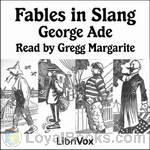 Fables in Slang
Fables in Slang
While a columnist for The Chicago Record humorist George Ade penned numerous “fables” which were subsequently collected into books. Fables in Slang is the first of these collections. It contains 26 satirical stories that lampoon phrenologists, idealists, snobs, fanatics and other ignorant fools of the day, most of which still wander through our modern lives. Jean Shepherd considered Ade a predecessor who made writers like James Thurber, Mike Royko, and himself possible. Fables in Slang was first published in 1899 by Herbert S. Stone and Company. | |
By: George Alfred Henty (1832-1902) | |
|---|---|
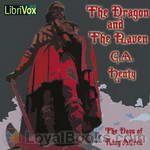 The Dragon and the Raven
The Dragon and the Raven
During the reign of King Alfred, Danish forces have invaded the English countryside. Although the English try to repulse these attacks, they are overrun by the savagery and sheer numbers of the Danes.One of those deeply touched by these attacks is young Edmund. As a boy, he watched as his father was slain in battle fighting the Danes. Although young, he was intelligent, and noted the mistakes made on the battlefield. As he grew into a man, he put that knowledge into use and created a uniquely trained group of soldiers and built a new, stronger ship called the Dragon... | |
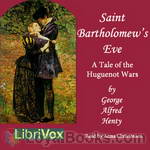 St. Bartholomew's Eve
St. Bartholomew's Eve
Set in the days of the religious wars of Europe, St. Bartholomew’s Eve is the tale of the Huguenot’s desperate fight for freedom of worship in France. As the struggle intensifies the plot thickens, culminating in the dreadful Massacre of St. Bartholomew’s Eve. Henty, “The Boy’s Own Storyteller” weaves the life and adventures of Philip Fletcher and his cousin, Francois DeLaville, into the historical background with thrilling battles, sieges and escapes along the way (not to mention a fair damsel in distress!). | |
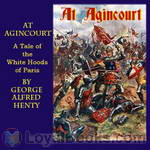 At Agincourt - White Hoods of Paris
At Agincourt - White Hoods of Paris
The story begins in a grim feudal castle in Normandie. The times were troublous, and soon the king compelled Lady Margaret de Villeroy, with her children, to go to Paris as hostages. Guy Aylmer went with her.Paris was turbulent. Soon the guild of the butchers, adopting white hoods as their uniform, seized the city, and besieged the house where our hero and his charges lived. After desperate fighting, the white hoods were beaten and our hero and his charges escaped from the city, and from France. (Summary from the original back cover) | |
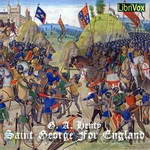 St George for England
St George for England
A tale set in England in the time of Cressy and Pointiers. A child of noble birth whose parents have fallen foul of the current royalty is taken by his dying mother and placed in hiding. He grows up with a bowyer and then apprenticed to an armourer just outside the gates of the City of London, becomes accomplished in arms and joins the campaign in France.A tale of heroism and 14th century viciousness. Great fun. | |
 By Pike and Dyke
By Pike and Dyke
It is the 1570's, and the people of the Netherlands live in terror under the cruel dominion of Spain. Though many long to be free of Spanish tyranny, efforts at rebellion are failing, and allies are nowhere to be found. Edward “Ned” Martin, son of an English captain and a Dutch lady, is thrust into the conflict when he resolves to help his mother’s people and avenge his murdered relatives. Entering the service of the revolutionary leader William the Silent, Prince of Orange, Ned is called upon to carry out dangerous secret missions deep within occupied territory... | |
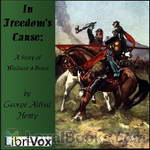 In Freedom's Cause
In Freedom's Cause
Another stirring tale from the master of historical fiction set in the time of Robert Bruce and William Wallace and their struggle for Scotland's independence. | |
 Beric the Briton - A Story of the Roman Invasion
Beric the Briton - A Story of the Roman Invasion
My series of stories dealing with the wars of England would be altogether incomplete did it not include the period when the Romans were the masters of the country. The valour with which the natives of this island defended themselves was acknowledged by the Roman historians, and it was only the superior discipline of the invaders that enabled them finally to triumph over the bravery and the superior physical strength of the Britons. The Roman conquest for the time was undoubtedly of immense advantage to the people -- who had previously wasted their energies in perpetual tribal wars -- as it introduced among them the civilization of Rome... | |
 Young Carthaginian
Young Carthaginian
Typically, Henty's heroes are boys of pluck in troubled times, and this is no different. Detailed research is embellished with a vivid imagination, especially in this novel set in the Punic wars, about which knowledge is limited: "...certainly we had but a hazy idea as to the merits of the struggle and knew but little of its events, for the Latin and Greek authors, which serve as the ordinary textbooks in schools, do not treat of the Punic wars. That it was a struggle for empire at first, and latterly... | |
 With Lee in Virginia
With Lee in Virginia
Vincent Wingfield is the son of a wealthy Virginian planter. When the country goes to war, he enlists in the cavalry, and sees action under the various generals commanding the army in and near Virginia. He has several private adventures as well, including a personal enemy, prison escape, rescue of a young lady, spying expedition, and recovery of a stolen slave. He rises in rank in the Confederate army, and after the war is over, he marries and returns home to manage his mother's plantation. Henty in this book gives an overview of the causes of the Civil War, and follows the battles and movements of the army in Virginia and the surrounding area... | |
 At the Point of the Bayonet: A Tale of the Mahratta War
At the Point of the Bayonet: A Tale of the Mahratta War
The story of the war in which the power of the great Mahratta confederacy was broken ended in the firm establishment of the British Empire the Indian Peninsula. When the struggle began, the Mahrattas were masters of no small portion of India; their territory comprising the whole country between Bombay and Delhi, and stretching down from Rajputana to Allahabad; while in the south they were lords of the district of Cuttack, thereby separating Madras from Calcutta. The jealousies of the great Mahratta... | |
 Bonnie Prince Charlie: a Tale of Fontenoy and Culloden
Bonnie Prince Charlie: a Tale of Fontenoy and Culloden
This is a tale of the son of a Scottish officer, who gets arrested for helping a Jacobite agent. Set during the Jacobite rebellion in Scotland in 1755, the boy escapes and makes it to France and shares some adventures with Prince Charlie. | |
 In the Reign of Terror: The Adventures of a Westminster Boy
In the Reign of Terror: The Adventures of a Westminster Boy
Like all Henty books, this one centers around a young English lad whose courtesy and courage win the day. Harry Sandwith travels to France to serve a French Marquis, despite the rumblings of a revolution. Follow along to benefit from a wholesome story full of historical facts in good, old Henty fashion. (Introduction by Jenn Raimundo) | |
 Colonel Thorndyke's Secret
Colonel Thorndyke's Secret
Intrigue, murder, highwaymen... A British soldier serving in India has stolen a diamond bracelet from a Hindu idol. The bracelet comes into the possession of Colonel Thorndyke, who is subsequently sent home to England, where he dies of wounds received and bequeaths the bracelet to his relatives, having told his brother about it, but not its location. Meanwhile, the theft has caused a stir in India, and the Hindu faithful regard it as their religious duty to reclaim the jewel at any cost. Also published under the title: "The Brahmin's Treasure". | |
By: George Barr McCutcheon (1866-1928) | |
|---|---|
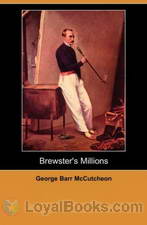 Brewster's Millions
Brewster's Millions
He hosts an all expenses paid luxury cruise to Europe for fifty guests and showers them with expensive gifts. When he's mugged in a dark alley, he insists that the thugs also take the $300 stashed away in his back pocket. He flies into a rage whenever one of his employees suggests cutting costs. Every time he places a bet, he wins, causing him even more despair! In Brewster's Millions by George Barr McCutcheon, a classic riches-to-rags tale, Montgomery Brewster is bound by the terms of an eccentric uncle's will to spend one million dollars completely within a year so that he can lay claim to an even bigger fortune... | |
 Graustark
Graustark
The Graustark novels are stories of court intrigue, royal disguise, and romance similar to Anthony Hope’s 1894 novel, The Prisoner of Zenda, and its sequels. They were popular best-sellers at the time they were published and the original editions are still readily available in used book shops. The novels gave their name to a fictional genre called Graustarkian: this genre contains tales of romance and intrigue usually featuring titled characters in small, fictional, Central European countries... | |
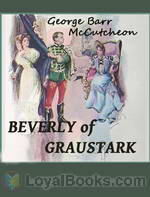 Beverly Of Graustark
Beverly Of Graustark
Beverly Of Graustark is the second book in the Graustark series. Lorry and his wife, the princess, made their home in Washington, but spent a few months of each year in Edelweiss. During the periods spent in Washington and in travel, her affairs in Graustark were in the hands of a capable, austere old diplomat–her uncle, Count Caspar Halfont. Princess Volga reigned as regent over the principality of Axphain. To the south lay the principality of Dawsbergen, ruled by young Prince Dantan, whose half brother, the deposed Prince Gabriel, had been for two years a prisoner in Graustark, the convicted assassin of Prince Lorenz, of Axphain, one time suitor for the hand of Yetive... | |
By: George Bernard Shaw (1856-1950) | |
|---|---|
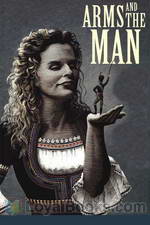 Arms and the Man
Arms and the Man
Arms and the Man is a comedy by George Bernard Shaw that takes place in 1885, during the Serbo-Bulgarian War. Raina Petkoff is engaged to the gallant Sergius Saranoff, hero of the recent Bulgarian victory over the Serbs. But she is distracted by the abrupt arrival of Captain Bluntschli, a Swiss mercenary who fought for the Serbian army. He takes refuge in her bedroom after the battle and although he is initially threatening, reveals that he carries chocolates instead of bullets. Will Raina marry the posturing Sergius or the chocolate cream soldier? Extra intrigue is provided by saucy servant girl Louka, her dour fiance Nicola, and Raina's hand-wringing parents. | |
 Mrs. Warren's Profession
Mrs. Warren's Profession
The story centers on the relationship between Mrs Kitty Warren, a rich woman, described by the author as "on the whole, a genial and fairly presentable old blackguard of a woman" and her daughter, Vivie. Mrs Warren is a middle-aged woman whose Cambridge-educated daughter, Vivie, is horrified to discover the morally questionable way her mother acquired her fortune. | |
 The Doctor's Dilemma
The Doctor's Dilemma
The Doctor's Dilemma is about Dr. Colenso Ridgeon, who has recently been knighted because of a miraculous new treatment he developed for tuberculosis. As his friends arrive to congratulate him on his success, he is visited by two figures who present him with a difficult decision. He has room for one more patient in his clinic; should he give it to Louis Dubedat, a brilliant but absolutely immoral artist, or Dr. Blenkinsop, a poor and rather ordinary physician who is a truly good person? Dr. Ridgeon's dilemma is heightened when he falls for Jennifer Dubedat, the artist's wife, who is innocent of her husband's profligacy. | |
 Candida
Candida
Candida, a comedy by playwright George Bernard Shaw, was first published in 1898, as part of his Plays Pleasant. The central characters are clergyman James Morell, his wife Candida and a youthful poet, Eugene Marchbanks, who tries to win Candida's affections. The play questions Victorian notions of love and marriage, asking what a woman really desires from her husband. The cleric is a Fabian Socialist, allowing Shaw—himself a Fabian—to weave political issues, current at the time, into the story. | |
 The Perfect Wagnerite
The Perfect Wagnerite
The Perfect Wagnerite: A Commentary on the Niblung's Ring (originally published London, 1898) is a philosophical commentary on Richard Wagner's Der Ring des Nibelungen, by the Irish writer George Bernard Shaw. Shaw offered it to those enthusiastic admirers of Wagner who "were unable to follow his ideas, and do not in the least understand the dilemma of Wotan." He interprets the Ring in Marxian terms as an allegory of the collapse of capitalism from its internal contradictions. Musicologically, his... | |
 Major Barbara
Major Barbara
George Bernard Shaw's Major Barbara focuses on the family of aristocratic Lady Britomart Undershaft and her estranged husband Andrew, a millionaire armaments manufacturer. Their daughters Sarah and Barbara are both engaged to be married, and Lady Britomart decides to ask Andrew for monetary support. Barbara is a Major in the Salvation Army, and agrees to let her father visit the mission in the East End of London where she works. In exchange, she agrees to visit his munitions factory. The conflict between Barbara's philanthropic idealism and her father's hard-headed capitalism clash when he decides he wants to fund the Salvation Army... | |
 Don Juan in Hell
Don Juan in Hell
Don Juan in Hell is an excerpt (Act 3, Scene 2) from George Bernard Shaw’s Man and Superman. It is often performed as a stand-alone play. In it, three characters from Mozart’s Don Giovanni (Don Juan, Dona Ana, and the statue of the Commendatore, Dona Ana’s father) meet in Hell and, joined by the Devil, have a philosophical debate on a variety of subjects, including Heaven and Hell, men, women and marriage. In the end, they all decide where they will spend eternity. | |
 Heartbreak House
Heartbreak House
On the eve of World War I, Ellie Dunn, her father, and her fiancé are invited to one of Hesione Hushabye’s infamous dinner parties. Unfortunately, her fiancé is a scoundrel, her father’s a bumbling prig, and she’s actually in love with Hector, Hesione’s husband. This bold mix of farce and tragedy lampoons British society as it blithely sinks towards disaster. | |
 Caesar and Cleopatra
Caesar and Cleopatra
| |
 Quintessence of Ibsenism (Version 2)
Quintessence of Ibsenism (Version 2)
InThis is an essay providing an extended analysis of the works of Norwegian playwright Henrik Ibsen and of Ibsen's critical reception in England. Shaw uses this "exposition of Ibsenism" to illustrate the imperfections of British society, using the idea of an imaginary "community of a thousand persons," divided into three categories: Philistines, Idealists, and the lone Realist. The main discussion revolves around Ibsen's recurring topic of the strong character holding out against social hypocrisy, while stating in his essay's final sentence that the quintessence of Ibsenism is that "there is no formula." ( Michele Eaton) | |
 Love Among the Artists
Love Among the Artists
Love Among the Artists was published in the United States in 1900 and in England in 1914, but it was written in 1881. In the ambience of chit-chat and frivolity among members of Victorian polite society a youthful Shaw describes his views on the arts, romantic love and the practicalities of matrimony. Dilettantes, he thinks, can love and settle down to marriage, but artists with real genius are too consumed by their work to fit that pattern. The dominant figure in the novel is Owen Jack, a musical genius, somewhat mad and quite bereft of social graces... | |
 Quintessence of Ibsenism
Quintessence of Ibsenism
George Bernard Shaw, a playwright with a few bones to pick of his own, undertakes a surgical analysis of the social philosophies underlying the work of Henrik Ibsen. Focusing his analysis on Ibsen's challenge to the conventional "ideals" which both Ibsen and Shaw consider the greatest evils in human society, Shaw summarizes and exposits sixteen of Ibsen's plays, seizing the opportunity to elucidate some of the principles dearest to himself. Some of the most striking passages reveal Shaw's radical feminist perspectives, some of which resonate as if a half-century ahead of their time... | |
By: George Borrow (1803-1881) | |
|---|---|
 Welsh And Their Literature
Welsh And Their Literature
Originally an article in the US Edition of the London Quarterly Review, George Borrow offers a sweeping history of Welsh literature, beginning with the legendary origin of the Welsh people, then their major bards and poets, and then their works of prose. Many examples are offered. | |
By: George Crabbe (1754-1832) | |
|---|---|
 Borough
Borough
English village life and villagers in the east of England in the late 1700’s and early 1800s—is the subject of The Borough. George Crabbe was an English poet, surgeon, and clergyman. He is best known for his early use of the realistic narrative form and his descriptions of middle and working-class life and people. Lord Byron, an avowed admirer of Crabbe's poetry, described him as "nature's sternest painter, yet the best." Crabbe's poetry was predominantly in the form of heroic couplets, and has been described as unsentimental in its depiction of provincial life and society... | |
By: George Eliot (1819-1880) | |
|---|---|
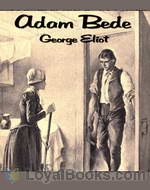 Adam Bede
Adam Bede
A young carpenter falls in love with the village beauty. She, however, has set her sights on a dashing army captain who's the son of the wealthy local squire. Meanwhile, a beautiful and virtuous young woman preacher arrives in the village. What happens to these people and the strange twists and turns that their lives take are described in the rest of the book. Adam Bede was George Eliot's first published novel. Published in 1859, the book has remained a firm favorite with readers and academicians alike and is still taught in many English literature courses all over the world... | |
 The Mill on the Floss
The Mill on the Floss
The novel details the lives of Tom and Maggie Tulliver, a brother and sister growing up on the river Floss near the village of St. Oggs, evidently in the 1820’s, after the Napoleonic Wars but prior to the first Reform Bill (1832). The novel spans a period of 10-15 years, from Tom and Maggie’s childhood up until their deaths in a flood on the Floss. The book is fictional autobiography in part, reflecting the disgrace that George Eliot (Mary Ann Evans) herself had while in a lengthy relationship with a married man, George Henry Lewes... | |
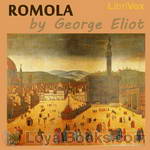 Romola
Romola
George Eliot's own favorite among her novels, this novel tells the story of Romola, the intelligent daughter of a blind scoller, who is falling in love with a man who is going to change her life and the politics of Florence in a way she doesn't like. Set in 15th century Florence, it is "a deep study of life in the city of Florence from an intellectual, artistic, religious, and social point of view". | |
 Scenes of Clerical Life
Scenes of Clerical Life
Scenes of Clerical Life, which appeared in book form in 1858 (after serial publication in the previous year), was the first published fiction by George Eliot, the pen name for Mary Anne Evans. It consists of three novellas based on the lives of country clergymen and their communities. These characters interest Eliot not for their theology — she had abandoned conventional Christian belief — but for their humanity. In these stories, we find the earliest signs of the narrative voice, the humanism, and the realism that would make George Eliot one of the greatest novelists of the 1800s. (Introduction by Bruce Pirie) | |
 Brother Jacob
Brother Jacob
Brother Jacob is a short story by George Eliot, in which she explores the relationship between the selfish, self-centered and ambitious David Faux and his idiot brother, Jacob. | |
By: George Gissing | |
|---|---|
 New Grub Street
New Grub Street
The story deals with the literary world that Gissing himself had experienced. Its title refers to the London street, Grub Street, which in the 18th century became synomynous with hack literature; as an institution, Grub Street itself no longer existed in Gissing’s time. Its two central characters are a sharply contrasted pair of writers:Edwin Reardon, a novelist of some talent but limited commercial prospects, and a shy, cerebral man; and Jasper Milvain, a young journalist, hard-working and capable of generosity, but cynical and unscrupulous about writing and its purpose in the modern (i.e. late Victorian) world. | |
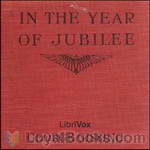 In the Year of Jubilee
In the Year of Jubilee
The Jubilee marks the fiftieth year of the reign of Queen Victoria. Dickensian in its sweeping scope of London life, Jubilee depicts the harsh and disreputable conditions of lower-middle class life at the end of the 19th century. (Introduction by S. Kovalchik) | |
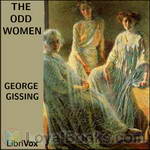 The Odd Women
The Odd Women
George Gissing's 1893 novel takes on the 19th century "Woman Question" by looking at themes of feminism, marriage, and love. The novel raises these issues through the lives of several contrasting women: Mary Barfoot, a feminist philanthropist who helps train women for careers; her close friend Rhoda Nunn, who believes marriage is a disastrous choice for women; and Monica Madden, who starts out as one of their protegees but chooses to marry a seemingly kind older man. As Monica experiences the challenges of married life, Rhoda finds herself drawn to Mary's cousin, the charming but apparently profligate Everard. | |
 Nether World
Nether World
This sad social novel revolves around the problematic issue of money. Michael returns from Australia to London a rich man. However, he hides this fact from everybody and spends money only on the things he really needs. He contemplates leaving his money to his granddaughter Jane, under the condition that she donate at least most of it to charity. However, Jane is not sure she can do it. This novel tells much about working class life in 19th century London. | |
 Private Papers of Henry Ryecroft
Private Papers of Henry Ryecroft
This novel consists of selections from the diary of an author, starting soon after his retirement and continuing until just before his death. There is very little in the way of plot, but a great deal of quiet musing about art, nature, society, and the things that make life worth living. Although this is a work of fiction, there are clear parallels between the narrator's life and Gissing's own life. This leads many commenters to view it as semi-autobiographical. | |
 Unclassed
Unclassed
The Unclassed tells the story of two friends who are aspiring authors living in London in the late 19th century. Both of them fall in love. Both believe in social change but do not know how to bring it about. Both are sceptical about the values of their times. Both want respectability more then they would admit. This book, unlike many others of it's time, tells about working women, and includes honest descriptions of the slums of London. | |
 Demos: A Story of English Socialism
Demos: A Story of English Socialism
"Richard Mutimer is delighted to inherit a large fortune. As a socialist, he means to use it well: he will open a factory in which workers would be treated well, he will advance his party's causes through his own wealth... At least, so he thinks. But reality may be far different. This novel raises more questions than answers. How much should money play in the marriage market, or can love have a prominent place? Can a man who gained power remain a socialist? This book is not only about political unrest... | |
 Life's Morning
Life's Morning
This is the story of a poor young lady Emily Hood who while working as a governess falls in love with Wilfrid Athel the son of her employer. They become engaged, however things do not run smoothly after a visit home to her parents and Emily has to make a heartbreaking choice. | |
By: George Griffith (1857-1906) | |
|---|---|
 Honeymoon in Space
Honeymoon in Space
| |
By: George Henry Lewes (1817-1878) | |
|---|---|
 Novels of Jane Austen
Novels of Jane Austen
An 1859 essay by the prominent philosopher and literary critic, G. H. Lewes, who was an enthusiastic promoter of the novels of Jane Austen at a time when they were yet to achieve great critical acclaim. Lewes was the life partner of the novelist George Eliot. - Summary by barbara2 | |
By: George Horace Lorimer (1869-1937) | |
|---|---|
 Letters from a Self-Made Merchant to His Son
Letters from a Self-Made Merchant to His Son
Being the Letters written by John Graham, Head of the House of Graham & Company, Pork-Packers in Chicago, familiarly known on 'Change as "Old Gorgon Graham," to his Son, Pierrepont, facetiously known to his intimates as "Piggy." George Horace Lorimer was an American journalist and author. He is best known as the editor of The Saturday Evening Post. | |
By: George MacDonald (1824-1905) | |
|---|---|
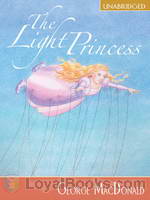 The Light Princess
The Light Princess
A king and queen are in despair. After years of marriage, they are yet to be blessed with a child. Finally a lovely daughter is born to them. They plan a grand christening ceremony for the baby, but as destiny would have it, they forget to invite the nastiest lady in the kingdom, who also happens to be the king's sister, the evil Princess Makemnoit. Now if all that seems distinctly familiar to you, it was meant to! Using the Sleeping Beauty/Briar Rose fairytale as a starting point, Scottish writer George MacDonald creates a story that's even more enchanting and gives it a nice little twist... | |
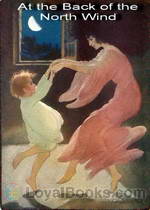 At the Back of the North Wind
At the Back of the North Wind
Written by the man who mentored Lewis Carroll and encouraged him to submit Alice for publication, At the Back of the North Wind is today a forgotten classic of Victorian children's literature. The story tells of a young boy named Diamond, the son of a coachman in an English country mansion. Diamond sleeps in the hayloft above the stables and at night he finds he's disturbed by the wind blowing through the holes in the wall. He tries to plug them but one night, he hears an imperious voice scolding him for doing this! It is the magnificent North Wind that speaks to him and tells him that he's closed up her windows... | |
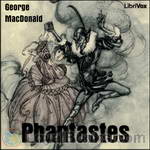 Phantastes
Phantastes
A young man named Anodos experiences dream-like adventures in Fairy Land, where he meets tree-spirits, endures the presence of the overwhelming shadow, journeys to the palace of the fairy queen, and searches for the spirit of the earth. The story conveys a profound sadness and a poignant longing for death. (Brad Powers) | |
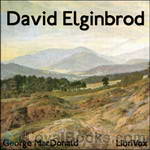 David Elginbrod
David Elginbrod
David Elginbrod was George Macdonald’s first real success, a novel of Scottish country life. Published in 1862, it was dedicated to the memory of Lady Noel Byron. | |
 The Lost Princess (or A Double Story, or The Wise Woman)
The Lost Princess (or A Double Story, or The Wise Woman)
Also known as "A Double Story" or "The Wise Woman."The story of two very spoiled girls, a princess and a peasant, who are kidnapped by a strange woman for a lesson in life. They may not emerge the same... but will their parents be changed for the better too? | |
 Robert Falconer
Robert Falconer
A Victorian novel devoted to beloved character first introduced to readers in MacDonald's David Elginbrod. | |
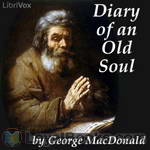 Diary of an Old Soul
Diary of an Old Soul
George MacDonald, a Scottish pastor, wrote these short poems, one for each day of the year, to help him with the severer misfortune he was experiencing. The poems are filled with hope and promises of Christ, yet, he also writes about his doubts. These poems are wonderful to listen to for people of any religion. | |
By: George Manville Fenn (1831-1909) | |
|---|---|
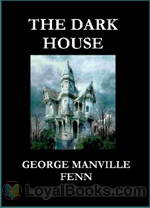 The Dark House
The Dark House
An extremely wealthy but reclusive man has died, leaving an eccentric will which hints at great riches hidden somewhere in the house. Most of the people at the reading of the will did not know the deceased in person, but had received kindnesses from him, for instance by the payment of school and university fees. The principal beneficiary, a great-nephew, also did not know him. The only two people who really knew him were the old lawyer who dealt with his affairs, and an old Indian servant. Yet when the will had been read, and they all went to where the treasure–gold, jewels and bank-notes–were supposed to be hidden, nothing could be found. | |